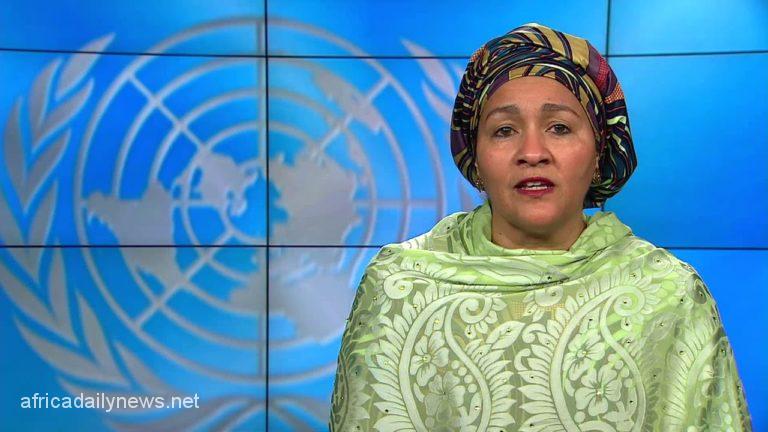Amina Mohammed, the United Nations Deputy Secretary-General, on Monday called on countries to invest in as much land restoration initiatives as they can.
She made the plea for this at the opening of the the15th session of the Conference of Parties (COP15) to the United Nations Convention to Combat Desertification (UNCCD) in Abidjan, Côte d’Ivoire.
Read Also: Nigeria Lost 45,000 People To HIV Last Year – United Nations
With certain reports, she noted that half of the world’s Gross Domestic Product (GDP) and its grain supplies depended on addressing land degradation.
“We are faced with a crucial choice.
“We can either reap the benefits of land restoration now or continue on the disastrous path that has led us to the triple planetary crisis of climate, biodiversity and pollution,” she said in a statement.
Quoting recent data, she said every year 12 million hectares of land were lost.
“The Global Land Outlook report just issued by the UN Convention to combat desertification shows that our current approach to land management is putting half the world’s economic output-44 trillion dollars- at risk.
“We must ensure that funds are available for countries that need them, and that those funds are invested in areas that will have a decisive impact and create a more inclusive, sustainable future for all,” she continued.
She noted that land restoration connected all of the Sustainable Development Goals (SDGs).
With a focus on restoring one billion hectares of degraded land between now and 2030, the conference aims to contribute to future-proofing land against the climate impacts, and tackling escalating disaster risks such as droughts, sand and dust storms, and wildfires.
The deputy secretary-general said despite the fact that women spent 200 million hours each day collecting water, and even more tending the land, they still lacked access to land rights and finance.
“Eliminating those barriers and empowering women and girls as landowners and partners is a game-changer for land restoration, for the 2030 Agenda, and for the African Union’s Agenda 2063,” she said.










